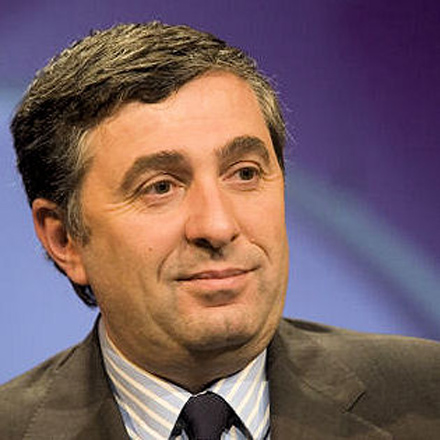Azerbaijan, Baku, Sept. 27 / Trend A.Akhundov /
Trend interviewed President of the European Union of the Natural Gas Industry- Eurogas Jean-François Cirelli.
Trend: What are your long-term expectations on demand and prices for gas in Europe?
Cirelli: Because of its "green properties" and highly efficient application technologies, natural gas will remain the fuel of choice and will continue to make a growing contribution to energy supply in the EU27. Natural gas can play an important role as a fuel for the development of a sustainable energy future over the coming decades.
In May 2010 Eurogas published its 2030 long term outlook presenting a "base case scenario" and an "environmental scenario" (wwww.eurogas.org). According to its results, natural gas consumption in EU member states is expected to rise from 437 mtoe in 2007 to a range between 500 and 535 mtoe in 2030, which corresponds to an increase between 14% and 23%.
As a main driver of the natural gas growth in Europe the power sector is characterized by a strong competition between the different fuels. The current slowdown of the economy underlines the importance of maintaining the competitiveness of natural gas prices in Europe in the different market sectors.
Q.: In your opinion, how effective is the European policy to diversify sources of imports of gas and the plans on alternative pipelines construction?
A.: After years of almost uninterrupted growth, the European gas industry for the first time faced important sales losses with a gas demand drop of 6.4% in 2009 compared with 2008, mainly due to the economic slowdown. Although it might take some time before the EU gas consumption reaches again its 2005 peak level, we already see recovery signs and the demand is expected to increase in 2010. In the long term natural gas consumption in EU member states is expected to rise from 437 mtoe in 2007 to a range between 500 and 535 mtoe in 2030, which corresponds to an increase between 14% and 23%. At the same time we expect that the current production in Europe (including Norway) will decrease from 250 mtoe in 2007 to 200 mtoe in 2020 and 145 mtoe in 2030. Today European gas production (including Norway) accounts for 55% of supplies to the European gas market. Russia represents 23% of the European supplies, followed by Algeria with a 10% share.
Taking into account the increasing gas demand and the gradually declining indigenous production the currently contracted gas supply cannot meet gas demand in the longer term. New imports will be necessary from 2015 onwards. Although potential shale gas reserves in Europe could play a marginal role in offsetting the decline in indigenous production, in 2030 the EU gas market will need around 70% from regions outside Europe.
A long term approach is essential to put natural gas in a position to play its role as an essential and important fuel in a sustainable energy future. Additional investments in new pipelines, LNG terminals and storages are necessary and in the present slowing down of the economy it is important that they are market-driven. Therefore projects must be based on sound commercial evaluation in terms of capacity and gas volumes involved.
Q.: What is the role of the Caspian region in terms of diversification of energy supply sources and providing energy security for Europe?
A.: The potential of the Caspian region is enormous, both in terms of available resources (43 Tcm without Russia) and proximity to the European market (3000km). Out of the 5 countries in the Caspian region (Russia excluded), the European companies are already active in some countries, such Azerbaijan, Kazakhstan and Turkmenistan. But the potential of the Caspian region is very important and there is a great interest in its further development. In the region, Azerbaijan is an example to follow. The development of its energy sector and the cooperation with the international energy companies should be followed by the other countries. The European companies therefore hope that in the future Azerbaijan will also play a leading role in the region as an example and facilitator. Numerous projects are already promoted in the region, amongst which we can cite Nabucco, ITGI and TAP.
The 2009 Ukraine-Russia and more recently Belarus-Russia gas dispute have contributed in a stronger push towards diversification of sources and routes in Europe.
Q.: What importance do you attach to China in a competitive struggle with Europe for Caspian and Central Asian energy resources?
The Chinese market is of great interest for us. Its exponential growth, registering an average 20% of yearly growth until 2009 is spectacular. Even in 2009 in the context of the economic slow-down the Chinese market registered a 9% growth, which could be compared with the 6% decrease in the European market.
Although China is an emerging strong competitor for Europe, the European market is big with around 450 Mtoe of consumption and 200 Mtoe of required imports. The maturity, stability, competitiveness and expertise of this market remain some of its main advantages.
SUMMARY:
Eurogas is aimed to promote and support the European gas market. Eurogas brings together 40 large international companies. 10 companies are its associate members.
Do you have any feedback? Contact our journalist at: [email protected]






